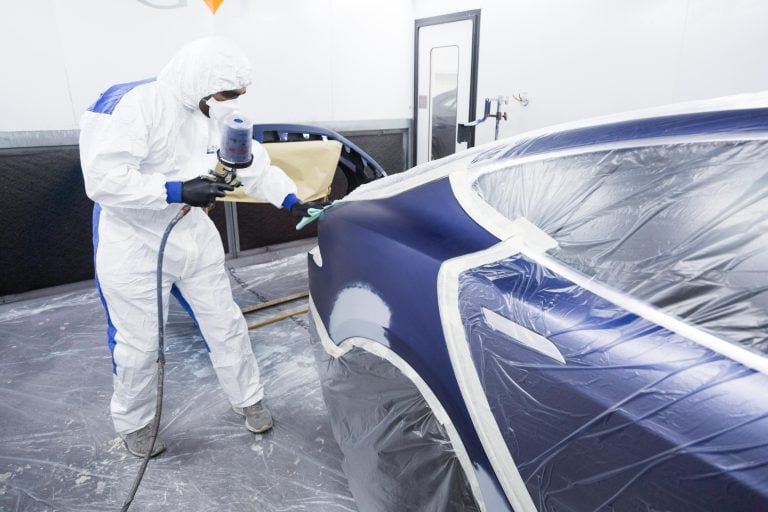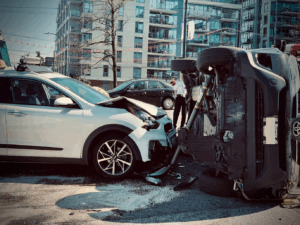- Servicing Case Studies
Does Your Car Make A Rattling Noise? Here’s What To Do | GVE London – Blog
Learn common causes of rattling noises in supercars, from loose parts to engine issues, and how to address them. Get expert tips on preventing future rattling sounds.
Hearing a rattling noise coming from your car can be alarming. Not only is it often annoying, but it could also signal a bigger problem that needs attention.
If you find yourself in this situation, it’s important to understand what might be causing the noise and how to address it. Here’s a guide on the potential causes of supercar rattling noise and what steps you should take to stop it.
Common Causes Behind the Supercar Rattling Noise
Rattling sounds can come from various parts of your vehicle, and understanding the context can help diagnose the issue. Is the rattle constant, or does it change with speed or road conditions?
Does it happen when the engine is idling, or does it only occur when you accelerate? It is vital to know the source and here are some of the most common reasons behind the rattling –
- Loose Parts: One of the most common reasons for a rattling sound is loose components. This could include anything from loose supercar exhaust parts, such as heat shields or mufflers, to suspension components like struts and shocks. These parts can vibrate and create noise as you drive.
- Engine Issues: Rattling can also originate from within the engine. This could indicate a problem with the timing chain or belt or even issues with the valves. If the sound is more pronounced when accelerating, it’s worth investigating further.
- Transmission Trouble: If you notice rattling noises when the car is in gear, the transmission could be the culprit. Issues with gears or bearings can produce unsettling sounds that may indicate a need for repair.
- Loose or Worn Belts: Serpentine or timing belts that are loose or worn can create a rattling noise. This is especially common in older vehicles where maintenance may have been neglected.
- Body and Frame Issues: Sometimes, rattling can come from the body of the vehicle itself, particularly if the car has been in an accident or has sustained wear and tear over time. Check for loose trim or body panels.
How to Tackle Supercar Rattling Noise?
If you cannot fix the issue by yourself, then it is recommended to visit a supercar service centre like GVE London to get the rattling noise fixed. Still, you can tackle the issue yourself by following certain steps –
Perform a Visual Inspection
Begin by inspecting your vehicle. Look under the hood and underneath the car for any loose or damaged parts. Pay close attention to the installation of the exhaust system, engine components, and suspension elements.
Take Note of the Conditions
Document when the noise occurs. Is it more noticeable over bumps, while accelerating, or during idling? This information can be invaluable when explaining the issue to a mechanic.
Listen Closely to the Noise
Try to pinpoint the area where the noise is coming from. Use your senses; sometimes a slight tap on a suspected part can help determine if it’s loose.
Consider Professional Help
If you can’t identify the source of the rattling, or if it seems related to engine or transmission issues, it’s best to consult a supercar service centre like GVE London. Ignoring potential problems could lead to more significant repairs down the road.
Never Ignore the Rattling Noise
Rattling noises are not to be taken lightly. While some sounds may not indicate serious issues, others can point to significant mechanical failures that can compromise the safety and performance of your vehicle.
How to Prevent Supercar Rattling Noise?
To minimise the chances of rattling noises in the future, regular maintenance is key. Here are a few tips to keep your car running smoothly:
Regular Inspections: Have your vehicle checked regularly by a professional. This includes looking at the exhaust system, engine mounts, and suspension components.
Tighten Loose Parts: If you notice any loose components, tighten or replace them as necessary.
Keep Up with Maintenance: Follow your manufacturer’s maintenance schedule for oil changes, belt replacements, and other critical services.
Conclusion
A rattling noise in your car can be a minor annoyance or a sign of a serious issue. By taking the time to investigate the source of the noise and addressing it promptly, you can maintain your vehicle’s health and ensure your safety on the road.
Remember, when in doubt, it’s always best to consult a supercar service centre like GVE London to get the problem diagnosed and fixed promptly by experienced technicians. You even get servicing, wrapping, detailing, customisation, etc. for your supercar.
Frequently Asked Questions
Listen for changes in noise with speed or conditions, inspect under the hood and car, and note when the noise occurs to help identify the source.
It depends on the cause. Minor rattles might be harmless, but serious issues could pose safety risks. It’s best to consult a mechanic promptly.
Regular maintenance, timely repairs, and inspections can help identify loose parts or wear before they develop into rattling noises, ensuring smoother vehicle operation.
Contact Us
"*" indicates required fields
OUR SERVICES
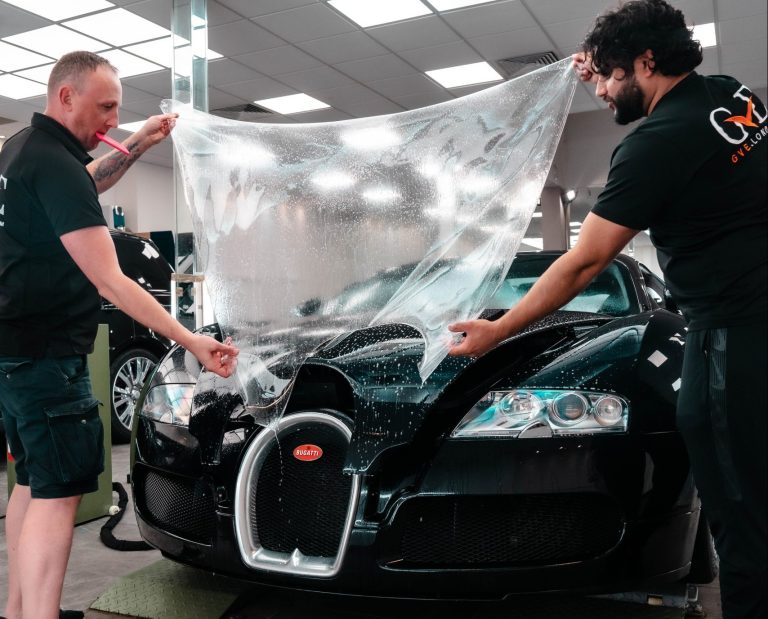
PAINT PROTECTION FILM
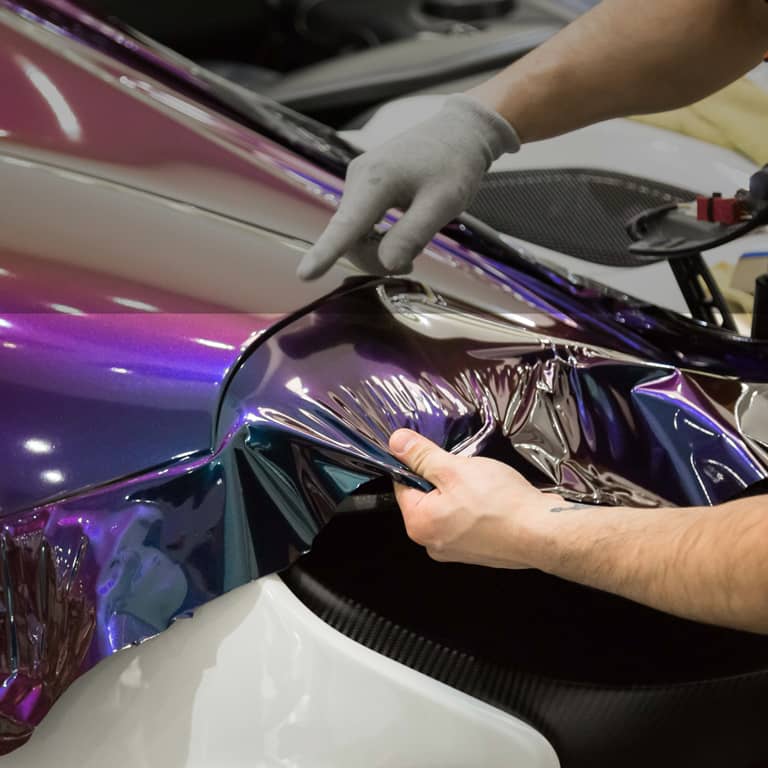
WRAPPING
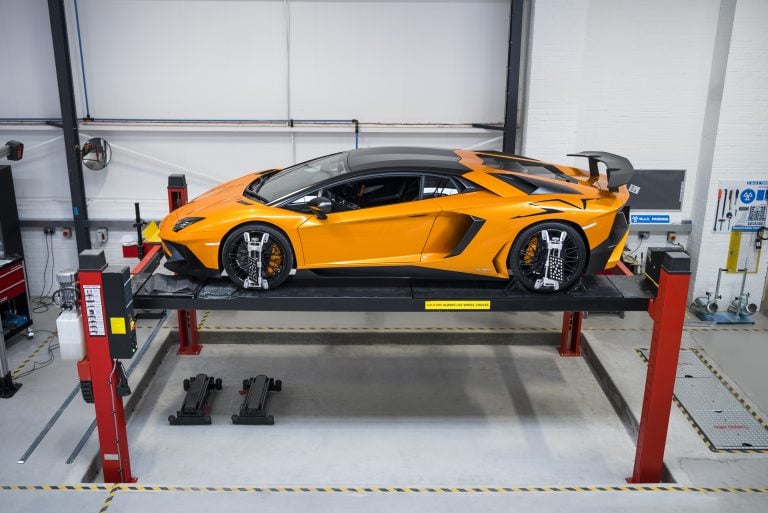
SERVICING
